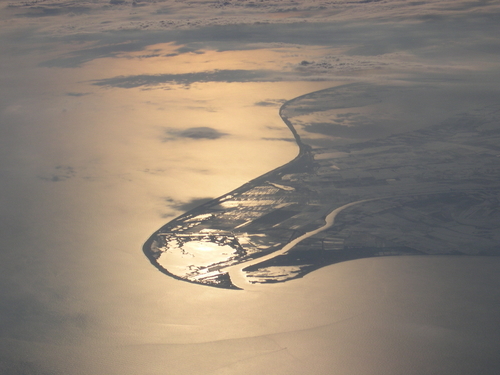CIRCE case study on the impact of climate change on the Ebro Delta

Ebro Delta from above
The Ebro delta is a good example of the vulnerability of Mediterranean deltaic environments to climate change, and the interactions between climate change and existing environmental stresses.
The main coastal problems identified for the Ebro delta are related to erosion, subsidence, and water quality. Erosion of the delta is largely due to the reduction of coarse sediment supply from the river. Subsidence is largely due to natural or enhanced compaction (e.g., from the reduction of fine sediment supplied by the river, or pumping from ground-water aquifers) and sea-level rise. The river is highly regulated, thus water quality is closely related to the variability in river discharge. In the future, localised torrential rain may play an important role in water quality.
Sea-level rise may accelerate erosion, a problem compounded by subsidence of the deltaic body. Sea-level rise would also affect salinisation through the deltaic body and river course.
The Universitat Politecnica de Catalunya is the CIRCE partner leading on this case study.
(0) Comments
There is no content